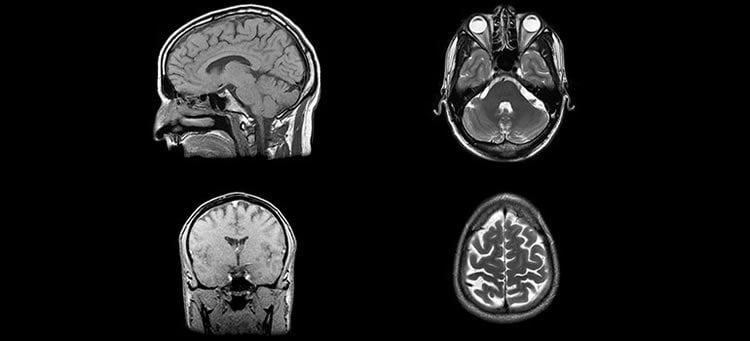Summary: Study confirms TBI can cause impulse control problems.
Source: University of British Columbia.
New research from the University of British Columbia confirms for the first time that even mild brain injury can result in impulse control problems in rats.
The study, published in the Journal of Neurotrauma, also found that the impulsivity problems may be linked to levels of an inflammatory molecule in the brain, and suggest that targeting the molecule could be helpful for treatment.
“Few studies have looked at whether traumatic brain injuries cause impulse control problems,” said the study’s lead author, Cole Vonder Haar, a former postdoctoral research fellow in the UBC department of psychology who is now an assistant professor at West Virginia University. “This is partly because people who experience a brain injury are sometimes risk-takers, making it difficult to know if impulsivity preceded the brain injury or was caused by it. But our study confirms for the first time that even a mild brain injury can cause impulse control problems.”
For the study, researchers gave rats with brain injuries a reward test to measure impulsivity.
Rats that were unable to wait for the delivery of a large reward, and instead preferred an immediate, but small reward, were considered more impulsive.
The researchers found that impulsivity in the rats increased regardless of the severity of the brain injury. The impulsivity also persisted eight weeks after injury in animals with a mild injury, even after memory and motor function returned.
“These findings have implications for how brain injury patients are treated and their progress is measured,” said Vonder Haar. “If physicians are only looking at memory or motor function, they wouldn’t notice that the patient is still being affected by the injury in terms of impulsivity.”
After analyzing samples of frontal cortex brain tissue, the researchers also found a substantial increase in levels of an inflammatory molecule, known as interleukin-12, that correlated with levels of impulsivity. Interleukins are groups of proteins and molecules responsible for regulating the body’s immune system.

The study builds on the researchers’ previous findings about the link between interleukin-12 and impulsivity.
Catharine Winstanley, the study’s senior author and associate professor in the UBC department of psychology, said the findings are important because impulsivity is linked to addiction vulnerability.
“Addiction can be a big problem for patients with traumatic brain injuries,” she said. “If we can target levels of interleukin-12, however, that could potentially provide a new treatment target to address impulsivity in these patients.”
Funding: The research was funded by the Djavad Mowafaghian Centre for Brain Health, the Canadian Institute for Health Research, the Weston Brain Institute, the National Institute of Neurological Disorders and Stroke and the Michael Smith Foundation for Health Research.
Source: Thandi Fletcher – University of British Columbia
Image Source: NeuroscienceNews.com image is adapted from the UBC news release.
Original Research: Abstract for “Frontal TBI increases impulsive decision making in rats: A potential role for the inflammatory cytokine interleukin-12” by Dr. Cole Vonder Haar, Dr. Kris M Martens, Ms. Lara-Kirstie Riparip, Dr. Susanna Rosi, Dr. Cheryl L Wellington, and Dr. Catharine A Winstanley in Journal of Neurotrauma. Published online April 4 2017 doi:10.1089/neu.2016.4813
[cbtabs][cbtab title=”MLA”]University of British Columbia “Brain Injuries Cause Impulse Control Problems: Rat Study.” NeuroscienceNews. NeuroscienceNews, 8 May 2017.
<https://neurosciencenews.com/tbi-impulse-control-6613/>.[/cbtab][cbtab title=”APA”]University of British Columbia (2017, May 8). Brain Injuries Cause Impulse Control Problems: Rat Study. NeuroscienceNew. Retrieved May 8, 2017 from https://neurosciencenews.com/tbi-impulse-control-6613/[/cbtab][cbtab title=”Chicago”]University of British Columbia “Brain Injuries Cause Impulse Control Problems: Rat Study.” https://neurosciencenews.com/tbi-impulse-control-6613/ (accessed May 8, 2017).[/cbtab][/cbtabs]
Abstract
Frontal TBI increases impulsive decision making in rats: A potential role for the inflammatory cytokine interleukin-12
Traumatic brain injury is associated with the development of numerous psychiatric diseases. Of particular concern for TBI patients is the impact of chronic impulsivity on daily functioning. Despite the scope of the human problem, little has been done to address impulsivity in animal models of brain injury. In the current study, we examined the effects of either a severe or a milder bilateral frontal controlled cortical impact injury on impulsivity using the delay discounting task (DDT), in which preference for smaller-sooner over larger-later rewards is indicative of greater impulsive choice. Both milder and severe TBI caused a significant, chronic increase in impulsive decision-making. Despite these pronounced changes in performance of the DDT, memory function, as assessed by the Morris Water Maze, was not impaired in more mildly injured rats, and only transiently impacted in the severe TBI group. While a significant lesion was only evident in severely injured rats, analysis of cytokine levels within the frontal cortex revealed a selective increase in interleukin-12 that was associated with the magnitude of the change in impulsive choice caused by both milder and severe TBI. These findings suggest that tissue loss alone cannot explain the increased impulsivity observed, and that inflammatory pathways mediated by interleukin-12 may be a contributing factor. The findings from this study highlight the sensitivity of sophisticated behavioral measures designed to assess neuropsychiatric dysfunction in the detection of TBI-induced cognitive impairments, and their utility in identifying potential mechanistic pathways and therapeutic targets.
“Frontal TBI increases impulsive decision making in rats: A potential role for the inflammatory cytokine interleukin-12” by Dr. Cole Vonder Haar, Dr. Kris M Martens, Ms. Lara-Kirstie Riparip, Dr. Susanna Rosi, Dr. Cheryl L Wellington, and Dr. Catharine A Winstanley in Journal of Neurotrauma. Published online April 4 2017 doi:10.1089/neu.2016.4813






